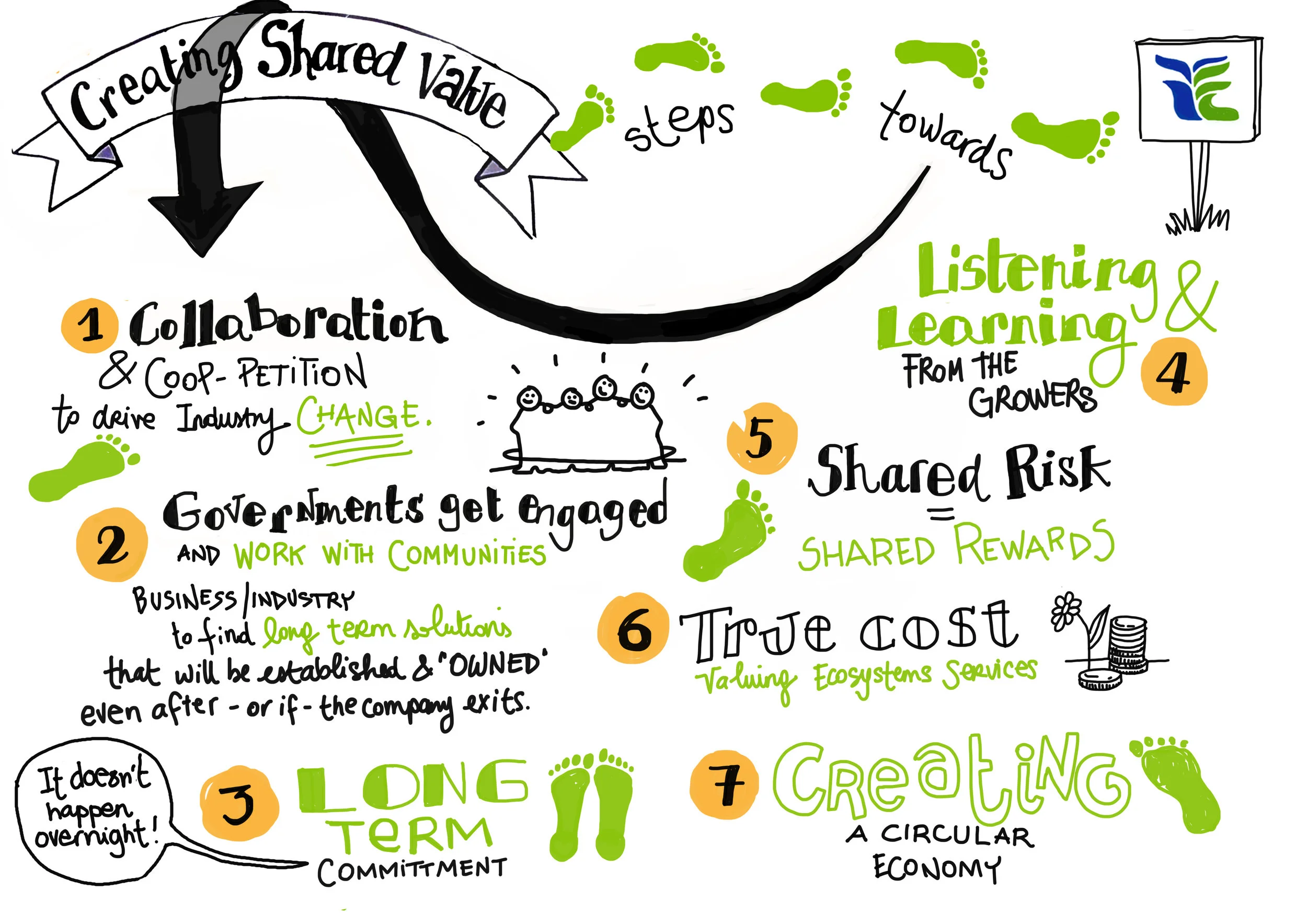FROM SHAREHOLDER VALUE TO SHARED VALUE
The late eminent UN Secretary-General, Kofi Annan* once stated;
“We must ensure that the global market is embedded in broadly SHARED VALUES and practices that reflect global social needs, and that all the world's people share the benefits of globalization”.
Secretary-General Annan, was among an increasingly sizeable cohort of global leaders who are vocalising the need for corporate companies to institutionalise the principles of the “Shared Value” philosophy beyond their corporate social responsibility (CSR) initiatives (which are usually treated as peripheral organisation projects) and blending them into mainstream business practices.
Source: AZ Quotes
Shared Value is a concept first articulated by Economist Prof. Michael E. Porter and N. Craig Co-founder and Managing Director of social impact advisory firm FSG in their 2011 Harvard Business Review journal article - Creating Shared Value ( https://hbr.org/2011/01/the-big-idea-creating-shared-value).
It is a management strategy through which corporates invest and manage business opportunities whilst concurrently addressing social and environmental issues. In essence, it encourages organisations to optimize their competitive advantage by developing creative solutions for customer outreach, new markets, talent acquisition, cost savings, etc with a blend of business and social innovations. This is in contrast to traditional philanthropy and corporate social responsibility (CSR) methods that primarily focus on grants and handouts for projects.
Textile Exchange, a not-for-profit (NFP) peak body in the textile industry, specialising in creating and promoting standards and procedures in preferred fibres and supply networks for its company members, nicely and colourfully elucidates schematically the benefits of businesses (and governments) in creating Shared Value in their business practices - at least in the context of the global cotton industry. Source: Textile Exchange
By implementing Shared Value, corporations are consequently beginning to incorporate altruistic social values into their strategies and ventures for profit whilst simultaneously addressing social impact - hence the concept ‘Shared Value’. Whilst launching for-profit ventures and businesses, they are leveraging on the expertise of non-governmental organisations (NGOs), philanthropic foundations, government and academic institutions through partnerships and collaborations.
One such corporation has been the Tata Group, India’s preeminent corporate conglomerate providing products and services ranging from steel manufacturing to food & beverages, automobiles, fashion and software consulting. Since its inception in 1863, the Tata Group has been a global forerunner in adhering to the social objectives set by its founders long before it was “cool” for the corporate world to engage in such endeavours. The initiatives range from providing free medical care to factory workers to implementing CSR initiatives encompassing community development, women empowerment and children education. When interviewed by Pioneer Post at the 2014 Skoll World Forum for Social Entrepreneurship, Subramanian Ramadorai, Vice Chair of Tata Consultancy Services (TCS), the Tata Group’s flagship company, states that 66% of Tata Sons’, the parent holding company, profits are channelled into social investments, social ventures and charitable goals. In addition, Ramadorai reminded the interviewer of a quote by Jamsetji Tata, Founder of Tata Group, “In a free enterprise, the community is not just another stakeholder in business, but is in fact the very purpose of its existence”. This gem of commercial wisdom is itself the quintessential articulation of Shared Value (https://www.pioneerspost.com/news/20140514/tea-and-cake-tata-indias-multi-billion-dollar-social-business).
Source: Twitter Account of the Tata Group.
While these are examples of a wide array of corporations carrying out Shared Value, it still begs one to wonder; what are the motivations for Shared Value in the Corporate World? While there is a big debate going on globally on the most probable reasons, one key cause that is widely concurred upon is the pressure on corporations by their customers, and the public at large, to give back to Society, as a mitigating undertaking for the current corporate financial and human rights scandals a number of them are embroiled in.
One vocal supporter of such pressure is Mike Baird, Chief Customer Officer of National Australia Bank (NAB) and former Premier of New South Wales (NSW) State in Australia. While being interviewed by the Australian Financial Review for an article in October 2017, Premier Baird said that “…bank customers had a right to be angry and it was time for big companies, not just the banks, to help tackle social problems such as youth homelessness, domestic violence and helping indigenous communities”. He further discussed on how the Australian Government’s push for a formal government inquiry, known as a Royal Commission, into allegations of unethical business practices in the Australian banking, insurance and superannuation industries, have given companies the impetus to rethink their business practices to make sure that they are more aligned to social needs of the communities of their customers (https://www.afr.com/business/banking-and-finance/mike-baird-says-banks-must-give-back-to-society-20171024-gz6u67).
Mike Baird - Chief Customer Officer of National Australia Bank (NAB) and former Premier of New South Wales (NSW) State in Australia. Source: SBS News
Regardless of the intentions and motivations of corporations, it is becoming increasingly clear that corporations are adhering more and more to Shared Value in their strategies mainstream businesses.
*who was also an Advisory Board Member for the international private equity firm and sovereign wealth fund, Investcorp Bank B.S.C. Europe.




